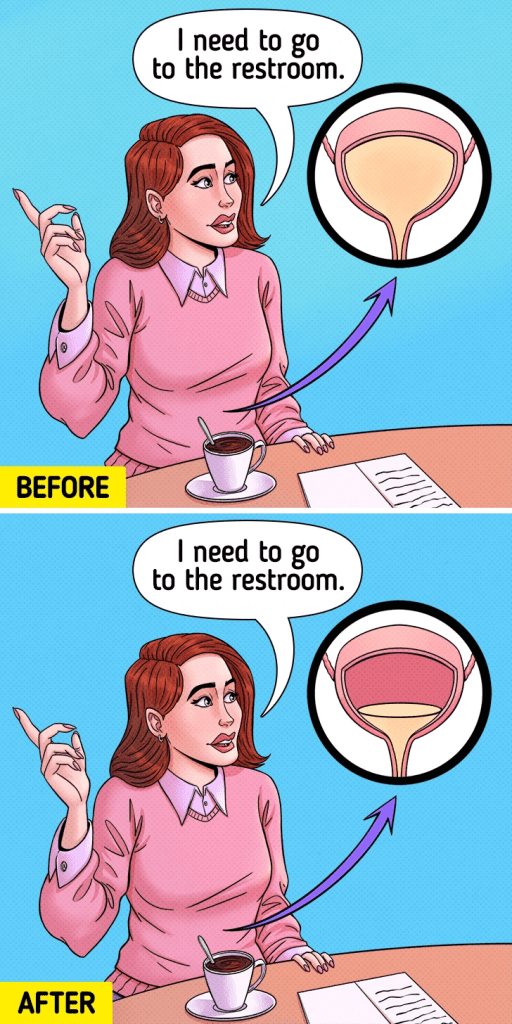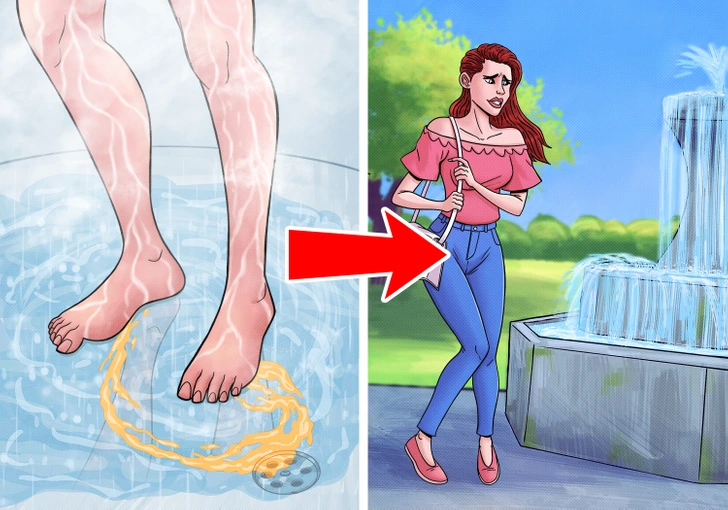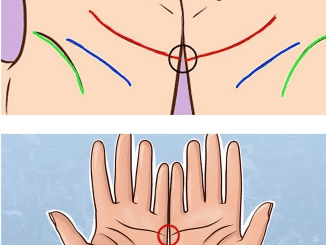Using the bathroom is one of the most natural things we do every day, yet many of us unknowingly develop habits that can negatively impact our health. While peeing and using the toilet may seem like simple activities, there are mistakes we often make that could lead to long-term issues. Curious to know if you’re guilty of these bathroom habits? Let’s dive in and discover what you should stop doing right away.
Why Bathroom Habits Matter for Your Health
Your bathroom routine isn’t just about hygiene; it’s also closely tied to your overall well-being. Bad habits can weaken muscles, confuse your brain’s signals, and even contribute to health problems down the line. The good news? Making a few simple changes can help maintain bladder control, improve digestion, and keep your body in better shape.
Here are five common bathroom habits you need to stop today.
1. Peeing ‘Just in Case’—Stop Training Your Bladder to Overreact

Many of us have the habit of using the toilet before leaving the house, even when we don’t feel the urge to pee. While this habit might seem practical, especially when facing a long trip or a lack of nearby restrooms, doing it frequently can actually make things worse.
- Why It’s Bad: By peeing “just in case,” you’re training your bladder to signal urgency even when it’s not full. This can lead to a condition known as overactive bladder, making you feel the need to urinate more often.
- How to Change It: Only go when you truly feel the urge to pee. If you’re unsure, try waiting a bit longer to see if the sensation passes. This will help train your bladder to hold more urine and reduce unnecessary trips to the bathroom.
2. Pushing to Pee—Avoid Straining Your Pelvic Muscles
When you’re in a hurry, you might try to speed things up by pushing to empty your bladder. While this might seem harmless, it’s actually one of the worst habits for your pelvic floor muscles.
- Why It’s Harmful: Straining while urinating puts unnecessary pressure on your pelvic muscles. Over time, this weakens the pelvic floor, increasing the risk of incontinence or prolapse. It can also disrupt the natural flow of urine, making it harder to fully empty the bladder.
- How to Change It: Relax and take your time when using the bathroom. Sit comfortably, lean slightly forward, and let the muscles relax naturally. If you’re struggling to urinate, try taking slow, deep breaths to encourage a steady flow without pushing.
3. Sitting Incorrectly on the Toilet—Adjust Your Posture for Easier Elimination
Believe it or not, the way you sit on the toilet can have a big impact on how easily you can pee or poop. Many of us adopt awkward positions, especially in public restrooms, which can lead to complications.
- Why It’s Problematic: Hovering over the toilet seat, for example, can cause tension in your pelvic muscles, making it harder to urinate. If your feet are not flat on the ground, it can also increase the strain on your body, making it difficult to achieve a complete bowel movement.
- How to Change It: For optimal posture, your feet should be flat on the ground, and your knees should be slightly higher than your hips. Use a small stool or footrest to elevate your feet if needed. Lean forward slightly, keeping your shoulders relaxed. This position helps align your body for easier elimination.
4. Limiting Water Intake to Pee Less Often—Stay Hydrated for a Healthy Bladder
One common misconception is that drinking less water can help reduce bathroom trips. While it might sound logical, this habit can actually worsen bladder problems.
- Why It’s Unhealthy: Dehydration can irritate the bladder lining, making you feel the urge to urinate more often. It can also lead to concentrated urine, which increases the risk of urinary tract infections (UTIs).
- How to Change It: Instead of reducing your water intake, focus on spreading your hydration throughout the day. Sip water regularly rather than drinking large amounts at once. This approach keeps you hydrated without overwhelming your bladder.
5. Peeing in the Shower—Break the Brain’s Association with Running Water

Peeing in the shower might seem convenient and even eco-friendly, but it can create a mental association between running water and the need to urinate.
- Why It’s Problematic: By consistently peeing in the shower, you may start to feel the urge to urinate whenever you hear water running—whether you’re near a sink, washing dishes, or caught in the rain. This can condition your bladder to misinterpret signals, making it harder to control urges.
- How to Change It: Try to separate shower time from bathroom time. If you’re in the shower and feel the urge to urinate, wait until you can use the toilet. This will help your brain maintain the right signals for when it’s truly time to pee.
The Importance of Healthy Bathroom Habits
While breaking old bathroom habits might seem trivial, the benefits are far from it. Improving your bathroom routine can help prevent health issues like overactive bladder, pelvic floor dysfunction, and UTIs. By maintaining better control of your bladder and bowels, you’ll be more comfortable in everyday life, whether you’re at work, home, or traveling.
How to Implement Better Bathroom Habits
- Listen to Your Body: Pay attention to your body’s signals rather than relying on routines. Go to the bathroom only when you genuinely feel the need to.
- Practice Patience: Don’t rush the process. Allow your body the time it needs to relax and empty properly.
- Stay Consistent: Good habits take time to build. Make these changes part of your daily routine, and soon enough, they’ll become second nature.
Conclusion
Your bathroom habits can have a surprising impact on your health, from bladder control to pelvic muscle strength. Breaking bad habits like peeing “just in case,” pushing to pee, and sitting incorrectly can significantly improve your well-being. Prioritize hydration, avoid associating running water with urination, and always listen to your body’s signals.
The next time you head to the bathroom, remember that small changes can make a big difference in your health. So, break these five habits and embrace a healthier routine for your body’s benefit!


